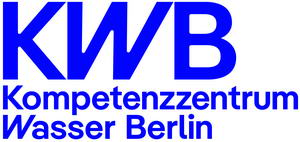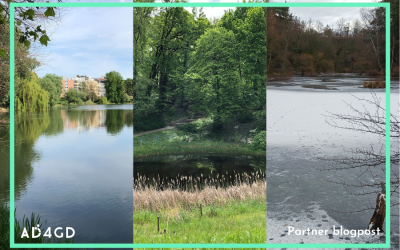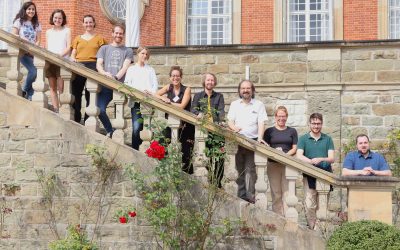Comprehensive water pollution monitoring
LEADING PARTNER

LOCATION

The water pilot aims to improve the health of Berlin’s small lakes by facilitating access to knowledge about their status. To this end, indices based on water quality are generated, mainly shaped by urban catchment areas, and water availability, largely dependent on soil sealing and drainage systems.
Current data gaps are overcome by combining information from different sources, such as measurements via water samples, IoT sensors, Earth Observation and citizen science programs. To address this, we are developing AI-based approaches for data validation and mash-up, ensuring compliance with the FAIR principles. This enables the transfer of knowledge from some regularly sampled lakes to other water bodies.
The final objective is to enable stakeholders to better assess Berlin’s small lakes, identify those with the greatest management needs and prioritize actions for current and future challenges based on more informed decisions.
Simplified data flow schema for the water pilot. Author: AD4GD.
Learn about the lakes!
How many small lakes are there in Berlin?
Berlin is considered to be a “green city” as 30% of its total area is covered by green spaces and 6% by water. A large part of this water surface consists of small lakes that are distributed throughout its urban fabric. Currently, we target 400 lakes of less than 50 hectares in size, whose surveillance requires a major effort and many different data. Some examples are the Sausuhlensee, the Ruhwaldsee and the Lietzensee lakes.
 Distribution of lakes of less than 50 ha in the city of Berlin. Image generated with Open-Streetmap. The lakes are shown larger than their actual size in order to be displayed on the map.
Distribution of lakes of less than 50 ha in the city of Berlin. Image generated with Open-Streetmap. The lakes are shown larger than their actual size in order to be displayed on the map.
Which are the benefits of urban lakes for people and the environment?
Urban lakes are crucial sources of freshwater for humans and can have lots of ecological benefits. On one hand, they function as biodiversity hotspots for many water and terrestrial species.
Due to the constant rise in temperatures on our planet as a result of climate change, cooling spaces in cities are becoming increasingly necessary. Urban lakes are also valuable climatic refuges that help to combat the heat island effect. In addition, these spaces are areas of leisure that benefit citizens both physical and mental health.
What challenges are these lakes facing?
These valuable ecosystems are currently in critical danger due to soil sealing and low blue and green connectivity derived from rapid urban densification and longer drought periods resulting from climate change. Many of them are also susceptible to degradation due to extreme weather conditions as they highly depend on storm and groundwater.
According to the European Water Framework Directive, monitoring is not mandatory for lakes smaller than 50 hectares and therefore, very little knowledge is usually available about these water bodies. As a consequence, there are no currently available automated methods to identify particularly polluted lakes and prioritize actions, which increasingly jeopardizes the health of these lakes and the ecosystem services they provide.
What are Europe's water quality objectives?
Water pollution is a matter of public health, environmental awareness, and socio-economic concern. The EU Action Plan “Towards a Zero Pollution for Air, Water and Soil” defines the European vision for achieving zero pollution by 2050 in the framework of the European Green Deal. One of the established objectives include “improving water quality by reducing waste by 30%”, for which proper monitoring is essential. This pathway also recognises that depolluted and re-naturalised sites could be potential public green areas that enhance better mental and physical well-being.
Furthermore, the ongoing revision of the Urban Wastewater Treatment Directive will bring new milestones aligned with the zero-pollution goals including stricter urban wastewater management plans for regulating collecting systems and against pollution from rain and storm water. In this regard, new monitoring obligations would also be introduced. (Source: European Parliament).
Do you want to learn more?
New IoT oxygen sensors will for the first time monitor the condition of 3 Berlin lakes
The data collected will contribute to the reseach on building blocks for the Green Deal Data Space.
How can the Green Deal Data Space improve the management of small urban lakes?
Malte Zamzow, researcher at KWB, presented the AD4GD water pilot at the WasserWerkstat in Berlin.
AD4GD pilots begin their journey with a workshop in Bonn
During the workshop, organized by Fraunhofer FIT, the most important features to be included in the pilots solutions were defined.
Stay tuned with us!
We share all our news & events in our newsletter







